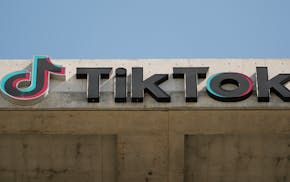Target could rake in more than $600 million in additional sales — which would translate into a nearly 1 percent lift in its comparable sales this year — as a result of the impending demise of Toys 'R' Us, according to a new research report.
As the bankrupt chain prepares to shutter its 735 Toys 'R' Us and Babies 'R' Us stores in the U.S., a number of other retailers should pick up some of that business. Those expected to see higher toy and baby goods sales include Walmart, Amazon and Target, already among the biggest U.S. toy sellers, as well as smaller specialty retailers.
"Given [Target's] mix and store overlap, we see it benefiting disproportionately," Seth Sigman, an analyst with Credit Suisse, wrote in the report.
After analyzing both chains' physical locations, Sigman concluded that 90 percent of Toys 'R' Us stores and 96 percent of Babies 'R' Us stores are within 5 miles of a Target.
Because of proximity and other calculations, he said Target is poised to capture about 15 percent of sales from those nearby Toys 'R' Us locations, 5 percent of sales from the Babies 'R' Us stores and 5 percent of the chain's online sales.
If those numbers pan out, it would be a significant growth driver for Target, which had a 1.3 percent comparable sales increase last year. Earlier this month, executives forecast low-single-digit growth in that metric for this coming year.
"There's a tremendous amount of disruption occurring across the retail landscape," Joshua Thomas, a Target spokesman, said in a statement. "We will continue to invest to create an even better Target and are prepared to welcome new guests to shop with us at our stores and online at Target.com."
Target CEO Brian Cornell has been upfront about the potential market-share opportunities as debt-laden retailers, which haven't managed the shift to online shopping, have closed thousands of stores or gone out of business. Last year, Cornell said there could be up to $60 billion in sales up for grabs across the retail industry due to struggling or bankrupt retailers.
With 16 consecutive quarters of sales growth in toys, Target had picked up market share well before the Toys 'R' Us bankruptcy. While it hasn't added much extra shelf space in stores for toys, Target has been focusing on exclusive and licensed products as well as growing areas such as board games.
"We're playing to win in toys," Cornell told reporters in November a couple of months after Toys 'R' Us filed for bankruptcy but before its announcement earlier this month that it would liquidate all of its U.S. stores. "We think there's opportunity to expand share."
Target is not the only retailer that has benefited as big-box chains have gone under in the last year. The Credit Suisse report touches on some of those other cases in its analysis of the Toys 'R' Us situation.
Richfield-based Best Buy picked up an estimated 6 to 11 percent of HHGregg's sales last year after the regional electronics and appliances chain went out of business, the report said. That helped boost Best Buy's annual comparable sales by an additional 30 to 50 basis points.
Meanwhile, Dick's Sporting Goods likely gained more than 200 basis points, or 2 percent, from the shuttering of Sports Authority and other sporting-goods chains — or about 10 percent of those chains' annual sales, according to the report.
But the opportunity for Target in the case of Toys 'R' Us is even bigger, Sigman said, since more than half of Target stores have a Toys 'R' Us within 5 miles of it, compared to roughly a quarter in the case of Best Buy/HHGregg and Dick's/Sports Authority.
Still, in the near term, the upcoming going-out-of-business sales at Toys 'R' Us stores are expected to put pressure on other retailers as consumers will likely flock to them to pick up heavily discounted toys.
The timing should work in favor of the other retailers because the sales are well ahead of the holidays. However, one potential wrinkle is that some third-party sellers could grab up products and then sell them online for cheaper during the holidays when toy sales surge.
"The demand for off-price items and discounts is pervasive, and it's this sort of mass disbursement that third-party online sellers will take advantage of, much to the chagrin of larger retailers," Tim Barrett, an analyst for Euromonitor, said in a statement.
Kavita Kumar • 612-673-4113

